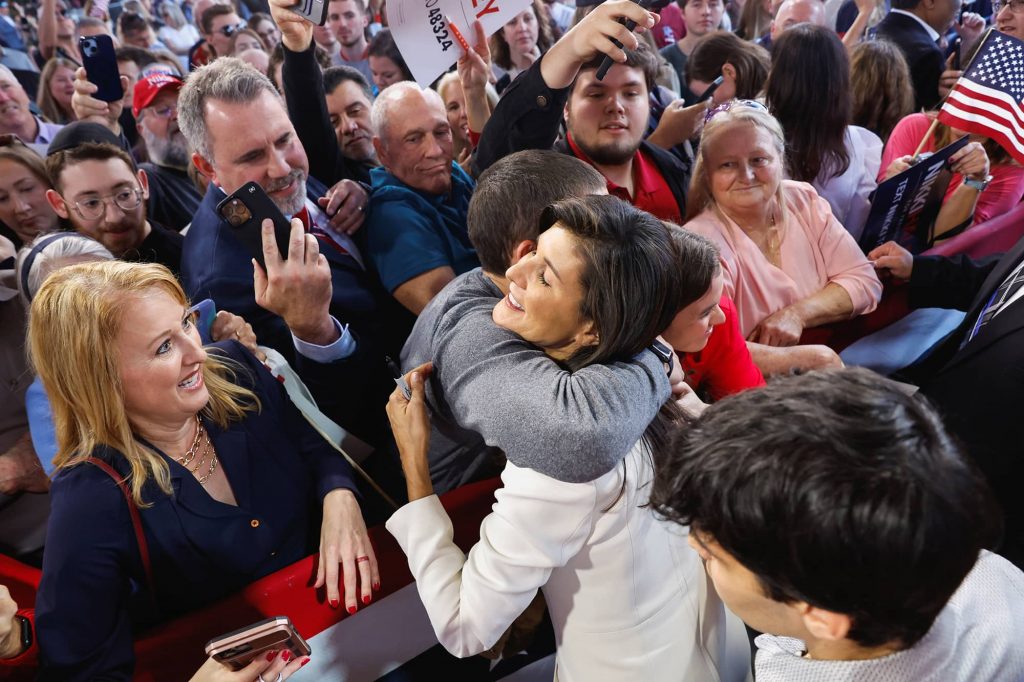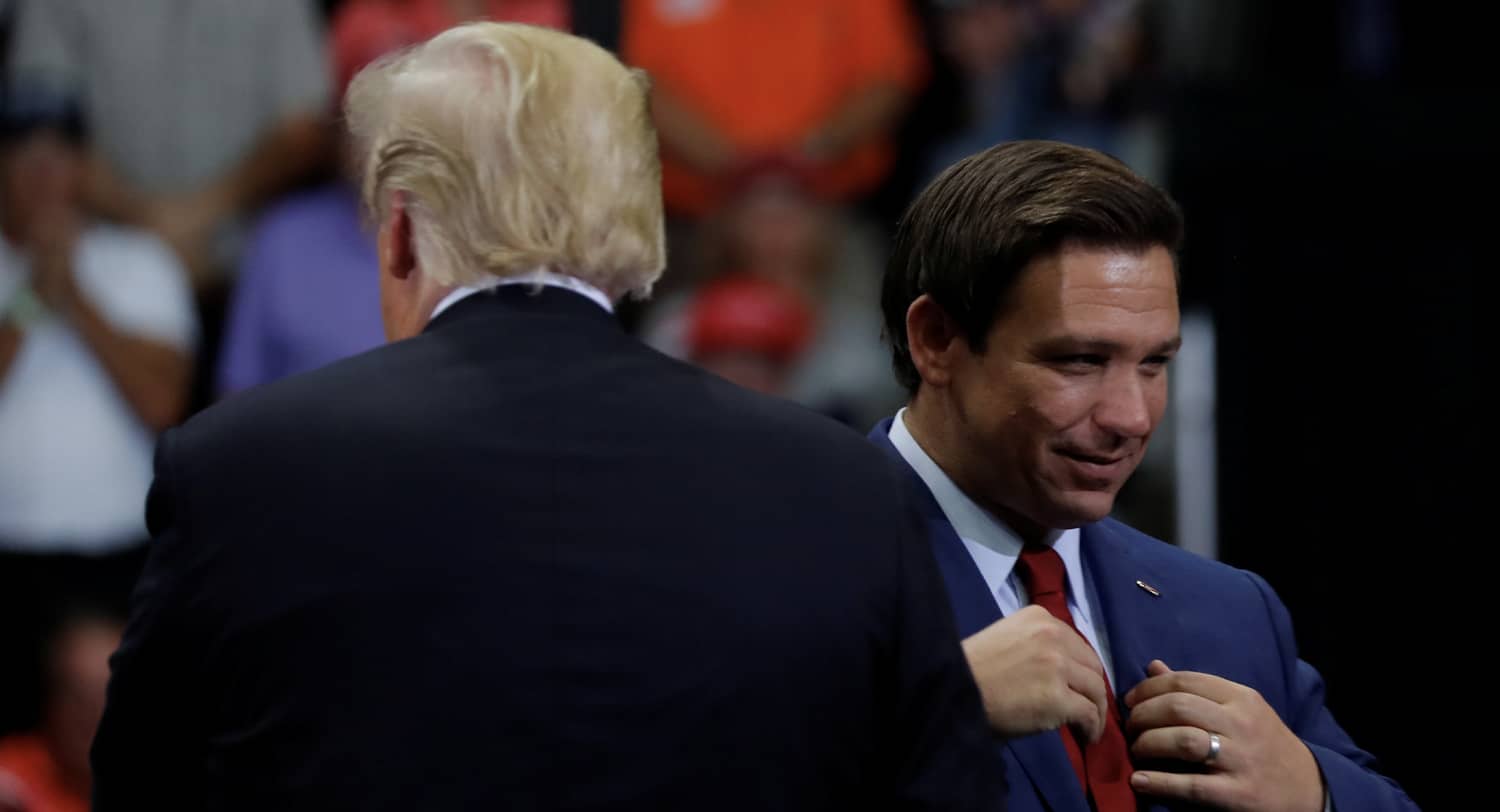The global order is changing rapidly. China is brokering normalization between Iran and Saudi Arabia while the United States brokers normalization between Arab states and Israel. Turkey and Russia are both antagonists and collaborators in multiple hot spots. Ukraine’s military is proving stronger than Russia’s. Alliances and friendships in the Indo-Pacific are coalescing against Chinese belligerence. Many African economies are growing quickly while some African nation-states appear to be collapsing. Latin American politics are rolling left after years of rolling right.
In the US, the 2024 contest for the American presidency has already begun, adding another variable to the geostrategic calculus. How will American politics, particularly in the Republican Party, affect US foreign policy during this time of great change? Will the US engage as a global leader as it has since the end of World War II, or will it turn inward and focus on it own domestic problems?
There are reasons to be concerned that the Republican Party is embracing isolationism and supporting the withdrawal of American leadership from the world. Some of the news from Congress is not encouraging. Before becoming speaker of the House earlier this year, Representative Kevin McCarthy said that Republicans would not support a “blank check” for Ukraine’s defense. A resolution offered on the House floor in March to withdraw American forces from Syria—where they are leading the fight against ISIS and other terrorist groups—won almost twice as many Republican votes as a similar vote last year, although the resolution ultimately failed. Some Republican budget proposals for fiscal year 2024 would cut spending on international affairs—that’s the State Department and the US Agency for International Development—by more than half.
These developments come on the heels of the disruptive, one-term administration of President Donald Trump. On multiple occasions, Trump threatened to withdraw the US from NATO in response to European members failing to spend 2% of their gross domestic product on defense. His budget plans had their own proposed massive cuts in State Department funding. President Trump canceled military training exercises with key ally South Korea and imposed tariffs on Canada. US friends and allies, accustomed to more predictable and supportive statements from Trump’s predecessors, grew concerned that American leadership was no longer a given.
The very nature of the Republican Party has changed over the past decade. It is no longer the party of big business and free trade. Voters without college degrees are more likely to vote Republican, as are blue collar workers. The Democratic Party has also changed, picking up more moderates, suburban voters, and voters with college degrees. Effectively, both parties are “purer” and less likely to have diverse views inside their respective tents. On abortion, for example, all House Republicans are pro-life and nearly all House Democrats are pro-choice. In years past, both parties had more than a few members who disagreed with the majority in their party on that issue. These more ideologically coherent constituencies give a bigger voice to extremist views on both left and right and limit the ability of party leadership to reach across the aisle and find bipartisan compromise on key issues, particularly budget questions.
On foreign policy questions, this relatively new arrangement has awkward consequences. The House vote on the question of pulling US forces out of Syria (where there are about 900 American troops, mostly in a training role) brought together Progressive Caucus Democrats on the left and Freedom Caucus Republicans on the right. Progressive Democrats have also voiced concerns about American support for Ukraine’s fight against Russia, writing to President Biden last year and urging immediate negotiations, although the letter was later withdrawn.
Of course, these politicians are responding to the ultimate power in America—voters. Many American voters are exhausted from more than two decades of war in Iraq and Afghanistan. The catastrophic withdrawal from Afghanistan in 2021 demonstrated what many no doubt saw as the futility of the US engagement in hostile environments. The intervention in Iraq, while showing better longer-term implications than Afghanistan, remains wildly unpopular across the American political spectrum. It is not illogical that politicians will seek to manifest this mood in their positions and votes, but what will be the ultimate impact on American foreign policy? Perhaps not what the headlines would have us believe.

Former US Ambassador to the U.N. Nikki Haley is hugged by a supporter as she announces her run for the 2024 Republican presidential nomination in Charleston, South Carolina, February 2023. Photo credit: REUTERS
Members of the House of Representatives, who run for reelection every two years, are the federal officials most closely tied to the immediate mood of voters. In the Senate, where members enjoy six-year terms, the policy positions are quite different. Senator Mitch McConnell, leader of Republicans in the upper chamber, told the Munich Security Conference in February that the GOP remained a strong supporter of American global leadership: “My party’s leaders overwhelmingly support a strong, involved America and a robust transatlantic alliance. Don’t look at Twitter, look at people in power.”
There are other indicators that the isolationist trend is not what it appears. Bipartisan concern over the rise of an authoritarian China and the need to respond decisively has been led by Republicans—including even the aforementioned disruptor, former President Trump. House Republicans have established a special committee to look into competition with China. Even with the current American mood of intense partisanship, Democrats are embracing the committee’s agenda, and the prospect of genuine collaboration is bright.
Below the political wrangling, a genuine foreign policy debate is happening, particularly among Republicans. Some policymakers, with intellectual leadership from former Trump defense official Elbridge Colby, believe that the US must elevate competition with China over all other concerns and make tough decisions about how much the US can provide support for other priorities, including Ukraine. Others articulate a view that the US must lead globally and cannot avoid being involved in major crises in Europe and the Middle East without highly negative consequences for American values and interests. The Hudson Institute’s Walter Russell Mead provides the counterpoint to Colby, regularly arguing that it is the US-led global order that is being challenged by China, and therefore the US must work—with friends and allies—wherever that order is threatened, particularly in Ukraine.
How will this debate connect with the presidential campaign and other political processes in Washington? The not-yet-declared presidential campaign of Governor Ron DeSantis may be the leading indicator. DeSantis criticized President Biden for visiting Kyiv in February, saying, “While he’s over there, I think I and many Americans are thinking to ourselves: Okay, he’s very concerned about those borders halfway around the world. He’s not done anything to secure our own border here at home.” This slap at the president is more than just a partisan hit—it’s a signal that as president, DeSantis might deprioritize support for Ukrainians. In other remarks, he has echoed McCarthy’s call for no “blank check” and has called for a strategy for the end game in Ukraine, something President Biden has not articulated.
DeSantis spoke in March at the Reagan Library in California. Like Reagan, he is showing that he will make no bones about appealing to what Mead calls “Jacksonian” voters in the upcoming primary fight for the Republican nomination. These American voters are skeptical of foreign engagements and don’t think the international order is always worth shedding American blood over. In the 1980 GOP primary battle, Reagan railed against the Panama Canal treaties and diplomatic recognition of the People’s Republic of China and deplored President Carter’s “weak” foreign policy. Once in office, however, Reagan pivoted to supporting America’s more nuanced leadership responsibilities to great effect, winning the Cold War against the Soviet Union and the Warsaw Pact.
Would a President DeSantis make a similar pivot and embrace American global leadership? His symbolic trip to the Reagan Library might be a hint.
Over the past several decades, successful American presidential candidates in both parties have leaned isolationist while campaigning. Bill Clinton’s mantra, “it’s the economy, stupid,” was a version of this. George W. Bush campaigned against UN nation-building. Barack Obama opposed doing “stupid sh**”—profane code for American interventions in the Middle East and Afghanistan. In office, however, American presidents largely have embraced American global leadership, including Trump who, despite some unwise threats, didn’t shirk NATO responsibilities or even humanitarian assistance programs.
American politics can be entertaining and even a bit alarming lately, but the bedrock commitment of the United States to global leadership is highly likely to remain in place no matter which party prevails in the coming presidential election.

